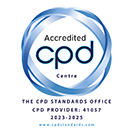15 November 2019
Antibiotics in the Water Environment:- Occurrence, Detection, Fate
Organised by:
SCI’s Environment, Health & Safety Group and the RSC Water Science Forum
RSC, London
Registration Closed
This event is no longer available for registration.
Synopsis
Antibiotics are widespread and persistent contaminants in aquatic environments. They occur in urban water cycles (in surface, groundwater, drinking and waste waters) and in association with intensive animal rearing. Typically, between 30–90% of the active compound gets excreted. Globally, two-thirds of antibiotics produced are used on animals.
With increased worldwide usage of antibiotics there is a growing risk of new drug-resistant microorganisms evolving when they interact with bacteria present in the water. This can lead to formation of so-called superbugs’ and is currently of serious health concern.
Antibiotics and their metabolites are also under scrutiny over their wider ecological impact and interaction with water treatment systems. Consequently, the need for stricter regulation of antibiotics in the environment is under review. The European Commission has recently included antibiotics on the updated Watch List under the Water Framework Directive and the UK Water Utility companies have an active Chemicals Investigation Programme to quantify the environmental inputs of selected antibiotics from wastewater outfalls across the UK.
The workshop will address the impact and fate of antibiotics in aquatic systems, mechanisms involved in the selection for antimicrobial resistance and implications for water treatment.
For further information please visit RSC Conference and Events website.
Attendees
- Environmental regulators, planners and policymakers
- Drinking water regulator
- Water treatment engineers
- Freshwater biologists
- Water Industry personnel
- Water quality managers
- Groundwater specialists
- Veterinary services and Animal Welfare
- Agriculture and Aquaculture sectors
- Analytical services
- Public health employees & pharmaceutical industry
Programme
| 09.50 | Registration and refreshments (Fish Room) | |
| Morning Session (Science Conference Room) | ||
| 10.20 | Welcome and information for the day WSF Committee |
|
| 10.30 | Pharmaceutical pollution and water quality - a global problem Dr John Wilkinson, University of York Department of Geography |
|
| 11.00 | “AMR in the environment and its relevance to environmental regulators” Dr Andrew Singer, Centre for Ecology & Hydrology, Wallingford |
|
| 11.30 | Considering the environmental dimension of antibiotic resistance using an integrated theoretical framework Prof William Gaze, University of Exeter Medical School |
|
| 12.00 | “Predicting selective windows in wastewater treatment plants: effect of plasmid transfer versus antibiotic concentration” Dr Jan-Ulrich Kreft, University of Birmingham School of Biosciences |
|
| 12.30 | “Antibiotics in the environment and their stereochemistry: from molecules to the catchment perspective” Dr Barbara Kasprzyk-Hordern, Dept of Chemistry, University of Bath |
|
| 13.00 | Buffet lunch (Fish Room) | |
| Afternoon Session (Science Conference Room) | ||
| 14.00 | “Antimicrobial resistant bacteria in the drinking water: chlorine tolerance, stress and its selection” Dr Charles Knapp, University of Strathclyde |
|
| 14.30 | “Prevalence and removal of selected antibiotics through conventional wastewater treatment processes” Mark Craig, Severn Trent Water Ltd, Coventry |
|
| 14.50 | “Antibiotics - a view from the Environment Agency” Mark Sinton, Environment Agency, Wallingford |
|
| 15.00 | “Antimicrobial resistance: Are wastewater treatment plants a problem or a solution?" Prof David Graham, Newcastle University School of Engineering |
|
| 15.30 | Final discussion Tea/Coffee available | |
| 16.00 | Close |
Venue and Contact
RSC
Burlington House
Piccadilly
London
W1J 0BA
Conference Team
Fees
Early bird fees before Friday 11 October 2019
| £105 | Members of SCI, RSC, IChemE | |
| £55 | Student/Retired Members | |
| £155 | Non-Members | |
| £70 | Student/Retired Non-Members |
Standard fees after Friday 11 October 2019
| £145 | Members of SCI, RSC, IChemE | |
| £70 | Student/Retired Members | |
| £185 | Non-Members | |
| £85 | Student/Retired Non-Members |
Become an SCI Member and save on this and future events
See Membership OptionsSign up as an Event Member to join this event. SCI Full or Student Members receive discounts on event registrations
CPD Info
All delegates attending this meeting are able to claim CPD points.






.ashx?h=166&w=344&hash=74030D6656AFA30F9619D0F3F2D93A52)



